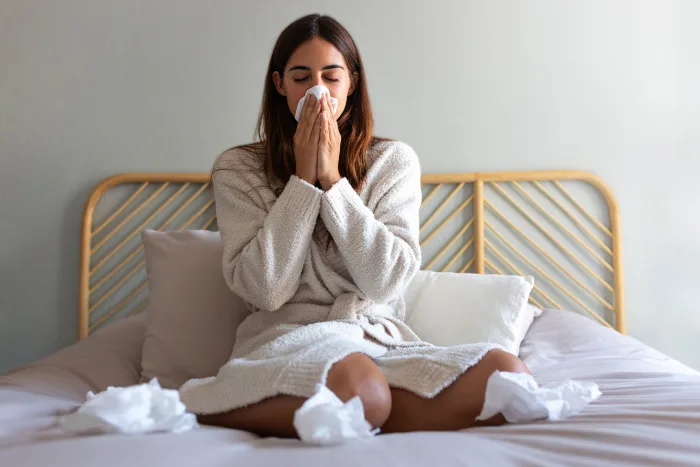As fall approaches, many people expect to catch colds or other respiratory illnesses like the flu, COVID-19, or RSV.
This is common due to cooler weather, holiday gatherings, and more time spent indoors, as Parade explains. However, doctors say there are habits we can break and healthy steps to stay well this season.
According to Johns Hopkins Medicine, colds are most common from late August to March, and flu outbreaks usually happen in late fall and early winter. Respiratory viruses like COVID-19 and RSV also pose risks during this time.
Even if you feel healthy, those around you may not be, so protecting yourself is important, especially for infants, the elderly, and people with weak immune systems, says Dr. Janice Cristobal, a family doctor at Medical Offices of Manhattan, as reported by Parade. These groups are more likely to get severely ill and may need hospital care.
The most important habit to break this fall is not washing your hands enough. Dr. Cristobal and Dr. Bryan Cochran, a primary care physician, both emphasize hand hygiene as a key way to avoid getting sick.
As Parade shares, washing your hands before eating, touching your face, or after returning home from public places can significantly reduce the risk of illness.
The Centers for Disease Control and Prevention (CDC) recommend scrubbing your hands with soap for 20 seconds or using hand sanitizer with at least 60% alcohol if soap isn’t available.
In addition to frequent handwashing, other ways to prevent sickness this fall include avoiding touching your face, staying home when you’re sick, getting vaccinated, and taking care of your overall health.
Parade reports that the CDC encourages getting the flu and COVID vaccines, which can prevent serious illness and hospitalization. For those aged 60 and older or with chronic conditions, the CDC also recommends an RSV vaccine.
Finally, make sure to rest when you’re sick, drink plenty of water, eat healthy, and exercise to reduce stress and boost your immune system, adds Dr. Cristobal.
Parade advises that if your symptoms persist for more than 10 days or worsen, consult your doctor. You could have the flu or another serious respiratory infection.
By following these simple tips, you can stay healthier during the fall season and help protect those around you.
Credit : Parade

